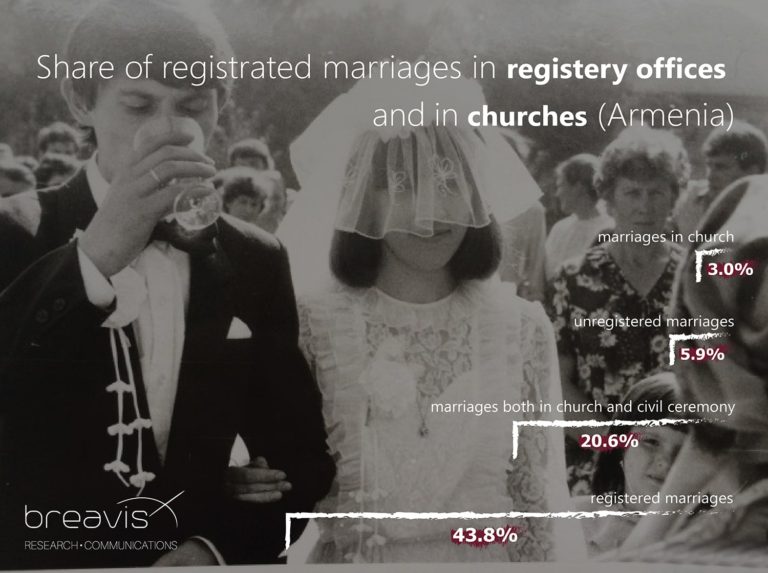
(HR and Organisational Development Senior Officer)
You have done pretty-well at school and university, and as a role-model you have been identified for various occasions. You are boldly confident you are going to have an interesting and a highest paying job and that you will create your own career path.
But at some point, you see you have graduated from university long ago, but you are not able to find a job yet. You are a little annoyed, and your relatives and neighbors take a chance to repeat “there is no way you can do without a good acquaintance; when if such an advanced learner like YOU is not able to find a job, what can other people say?”
Yes, this is a widespread issue; everybody is always complaining of the lack of employment opportunities. Yet, let us try to understand what YOU can do to change this situation.
Option 1։ You will be surprised, but you should start working since your student years. Working would not necessarily mean for the sake of earning, but that also is required for gaining very important skills that will further help you find a job. Let us call that a job, practicing, or “internship” a well-known phenomenon nowadays. Trust me, that experience is very important. In our interview, we as human resource specialists come across applicants who are completely in denial and even do not have elementary communication skills. But one can still make efforts, attend in various programs, become a volunteer or an intern, communicate, realize what is going on in companies, what are the needs of the employment market, and after all not to be totally unprepared.
Option 2։ You will very much benefit from the knowledge of how to apply for a certain job position. There is so much information available on the internet on how to create a CV, how to attend the interview properly, etc. All this is available, but one should also follow the suggestions. This will only help you. Let us highlight the rude mistake in a few points, which you probably make, and that is why you are not invited for an interview.
- You don’t read the job description. You are certainly smiling, because you just remembered you DO NOT really do that. You only read the title and apply for the given position without getting to know the requirements. And once again you are not invited for an interview because you don’t match (and if you don’t read that is what mostly happening) to the position. You are disappointed again. This sounds so familiar, doesn’t that: “I’ve sent my CV everywhere, but I’m not contacted from any place.”
- You send a wrongly composed CV. Let’s specify this a little. By saying “wrong” we don’t mean that is breaking some criteria. There is no generally accepted format one must follow. You just need to provide the information related to the given position properly. And one more thing: Pick a relevant photo to attach to your CV, and not the one that got more “likes” on social networks.
And finally, send your CV only if the company has a vacancy and if you apply for the announced vacancy. The CV-s you send randomly are lost, thus disappointing you all over again.
Option 3։ You are already invited for the interview. You finally succeeded. Let us here recall the Option 1. If you read the announcement and believe you can do that work, one cannot but notice that. This is almost a relatively +1 point in creating a positive impression.
Always be tidy; this refers to your appearance, to the way you speak and how you behave. Now you have an opportunity to introduce yourself, speak about your work experience. Nobody is going to do that for you. So, be precise and tell what you have without a whitewash or strips. Remember, when you start working at that company sooner or later everything will be smoked out.
Like many others you possibly don’t avoid the common mistakes. For example, you provide general responses without examples.
HR specialist: What was your function in the given sphere? What have you done?
Applicant: Well, I have done various diverse and interesting staff.
Do you agree that this response does not really say anything? And that you are already losing a relatively 1 point out of your “impression package.”
Never think that the human resource specialist asks you trifling questions. When they ask you about your current or former colleagues, your favorite book, childhood dream and even about how you found their office (was that easy or difficult for you?), this has a very significant purpose. You don’t really know yet what the job presumes, do you? Whereas, the HR specialist does for sure.
Always research about the Company where you are invited for an interview. It is unacceptable that the applicant says at the interview: “Could you please tell me about your Company? I have limited knowledge about that.”
Option 4․ You are not matching to the position. You may probably not be shortlisted for the given job, because you are not the specialist the company seeks. Learn to accept this reality. The HR specialist knows the job specifics and the corporate culture of the company; thus, they can realize whether or not you are good fit for that job. You deserve to have a job which matches you and which you will love for sure; remember it is very important to love the job, which is the key to efficiency and a better work.



